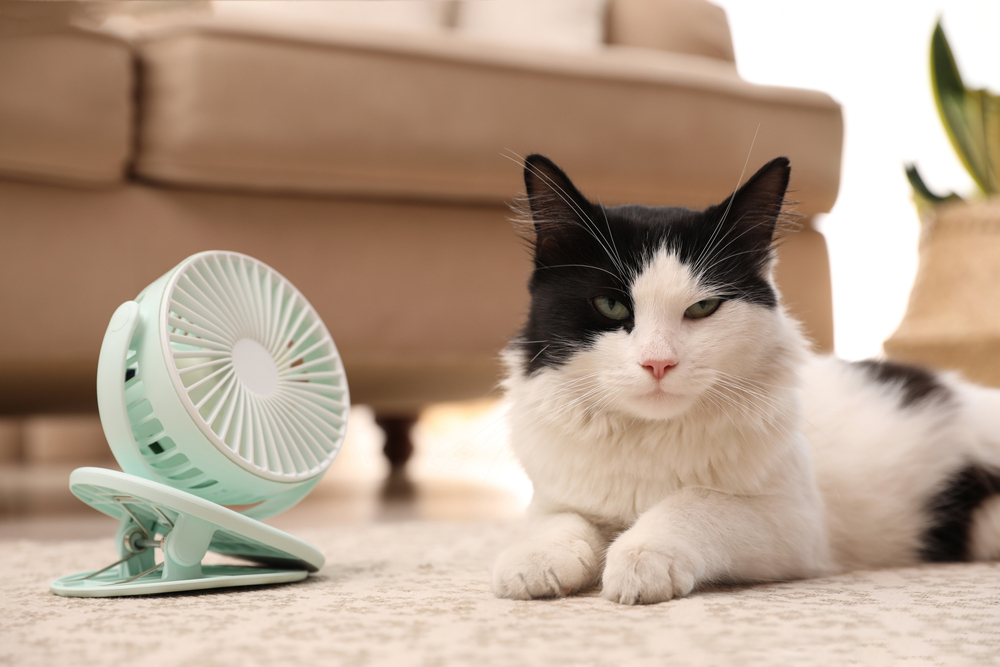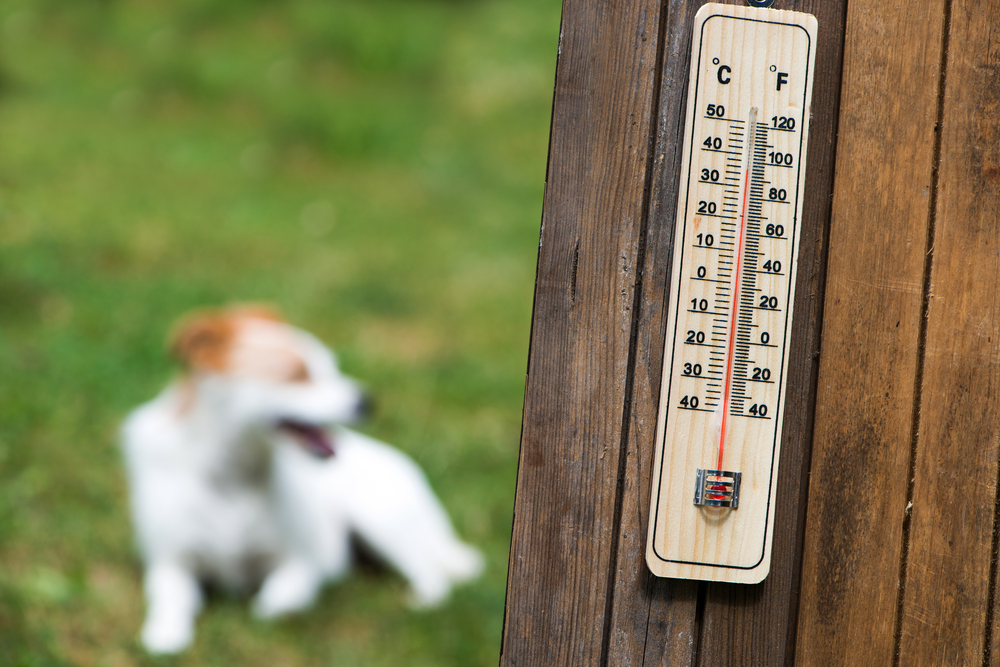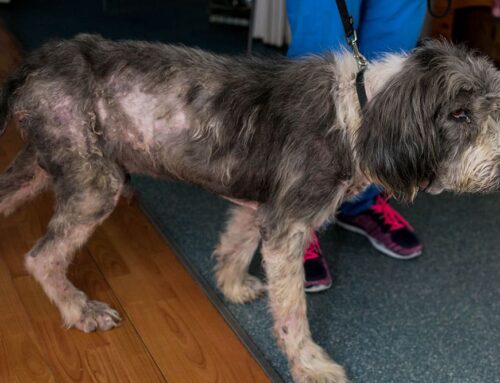From sun exposure to weather conditions, vehicle travel, fireworks, and cookout fires—the summer heat is on. MountainView Veterinary Hospital wants you and your pets to beat the heat and stay safe. Learn how you can minimize pet heat safety risks, and what you should do if heat exposure affects your pet.
Pet sun exposure risks
Pets with white or lightly pigmented skin have a higher risk of sunburn—and then skin cancer later in life. Clipping your pet’s thick, dark-colored hair coat can help ease their heat stress, but do not shave hair too close, or you increase their sun damage risk. To beat the heat, stay in the shade when outdoors with your pet, and avoid times of highest sunburn risk (i.e., between 11 a.m. and 3 p.m.). Some pets will tolerate a UV-protective pet sunsuit or hat, while others prefer a pet-safe sunblock or a high SPF baby sunscreen without zinc. A collapsable tent is a good way to provide shade for your pet.
Pet summer weather risks
Sun exposure puts the heat on pets, but temperature and humidity are also weather risks. The CDC has created a heat index app with suggested heat safety precautions. When the heat index is high, help decrease pet risk with the following tips:
- Hydrate — Provide plenty of cool, fresh drinking water—taking a cooler with ice packs may be best.
- Acclimate — Pets who are not used to the heat may be at greatest risk, so ensure they take frequent indoor breaks in the air conditioning.
- Know the risks — Know if your pet is at greater risk for heatstroke.
- Overweight pets suffer more in the heat—another reason to keep your pets in ideal body condition. Pets with underlying respiratory or cardiovascular problems, such as asthma, heart disease, or laryngeal paralysis, may have trouble panting to cool themselves.
- Brachycephalic pets (i.e., flat-faced pets) are more at risk in the heat because of their small windpipes, small nostrils, and relatively large tongues and soft palates.
Pet vehicle heat risks
Temperatures can rise quickly to dangerous levels for pets left in parked vehicles. The temperature can endanger your pet in less than two minutes and rise 20 degrees in 10 minutes. Surfaces such as the steering wheel, dashboard, or seats can quickly reach higher than 200 degrees, and cause harm when touched. Leaving the windows partially lowered and parking in the shade do not decrease the risk. Never leave pets unattended in a vehicle, because they can die from heat stress in less than 10 minutes.
Pet fireworks heat risks
Igniting fireworks requires a flame, and the explosions themselves generate a lot of heat, putting pets at risk during a fireworks display. Consider leaving pets at home indoors, especially pets who have a noise phobia, where they are out of harm’s way.
Pet cookout heat risks
Cookouts can burn pets in more ways than one. Pets don’t have to be close to the flames to get singed—remember, embers and sparks can fly several feet. Never let pets near campfires or grills, where they could come in contact with hot coals. Also, few pets can resist toasted marshmallows or flame-grilled hotdogs, despite being dangerously hot, and can not only burn their mouth but also have a gastrointestinal issue, because human foods—especially the chocolate with the s’mores—are toxic to pets.
Pet heat stress signs

An overheated pet will pant heavily and become restless and agitated. As their heat stress progresses, they may show bright red gums, drooling, gagging, or vomiting. When pets progress to heat prostration or heatstroke, they may become weak, wobbly, and collapse. Without immediate help, heat stressed pets may suffer multiple organ system failure—about 50% of pets with heatstroke die. Know how to cool your overheated pet:
- DO:
- Move them into the air conditioning, in front of a fan
- Offer small amounts of cool water frequently
- Take your pet’s rectal temperature, if possible–above 102.5 degrees is too high
- Bring your pet to our hospital as soon as possible
- DON’T:
- Cool your pet with ice packs or rubbing alcohol
- Place cold wet towels on your pet, because they trap body heat
- Pour cold water over your pet
The heat is on, risking your pet’s safety and wellbeing. Follow MountainView Veterinary Hospital’s pet safety tips as you enjoy the summer together, but call us immediately if you think your pet is experiencing any heat stress.









Leave A Comment